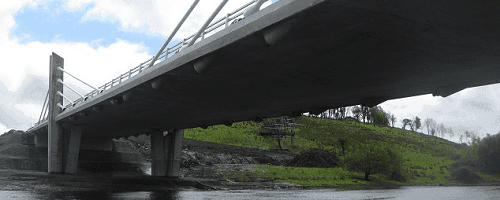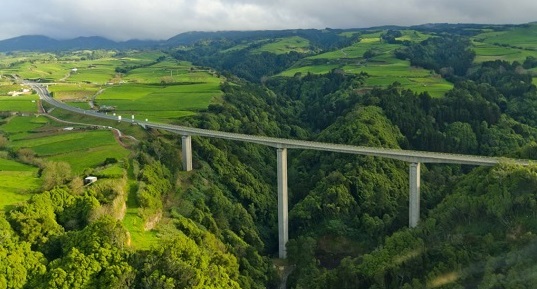
Internationalisation and engineering: challenges and opportunities
21 of October of 2013
The company’s growing internationalisation has brought changes with it in the way we work at the Technical Office of Ferrovial Agroman. Coordinating the tasks of the teams located thousands of kilometres away or adapting to each country’s regulations and procedures are new challenges for the company’s engineers. Technology united with the experience and capabilities of the professionals constitute the best tool for overcoming them.
Our firm has an established international position, with 70% of the sales and portfolio of Ferrovial’s construction subsidiary has its origins outside Spain. The impact of the growing international business goes beyond the financial results and entails new challenges for all professionals at our company, regardless of the area in which they work. However, the challenge is greater in those that, owing to the nature of their activity, present a greater complexity.
This is the case with the Technical Office. To give just one example, a highways construction project requires specialists in the layout of roads, geotechnics, bridge structures and environment, to which, in the case of infrastructures requiring lighting or tunnels, we would have to add experts in drainage and installations. If coordinating the work of these professionals with their diverse profiles is a challenge in itself, the task becomes even more complicated in the execution of international projects where collaboration with local engineering firms is a common practice.
Currently the United States, Canada, United Kingdom, Ireland, Latin America and the Middle East are the geographic areas that concentrate the greater part of the contracts. Each one of them has its own peculiarities (relating to market, legislation and culture) to which the Technical Office has to adapt.
In the United States and Canada, two consolidated markets for our company, more than three years ago we launched an innovative outsourcing system. The bulk of the design and production is executed in Spain. The project remains “in the cloud” and by means of telematics and workgroup tools it is reviewed by the local engineering firm, which ensures that local regulations are met and then makes the project its own for the purposes of signatures and for defending it before the Administration. This way of working increases the quality of the projects and greater savings are made on site.
Sharing a language facilitates the task of internationalisation in large parts of Latin America, where the image of Spanish engineering, furthermore, is highly positive, allowing us to work directly for the Administrations.
In the Middle East there are barely any local engineering firms. Here it is the Anglo-Saxon engineering companies that are most widely introduced, though there are some Spanish ones. For tenders we resort to one or the other, often as Temporary Joint Ventures.
In all cases of internationalisation, the Technical Office supervises the details of the work performed by the local engineering firms. The experience and capability of the Technical Office’s professionals acquire a central role in this task, as they provide the necessary authority to direct the consultants.
In projects involving large monetary amounts, a supervisory team travels to the site. It generally comprises a project manager, a specialist in roadways, one in geotechnics, one in structures, and an environmental specialist is hired locally on a regular basis. These displaced teams report functionally to the Technical Management, though in terms of hierarchy they report to the Works Site in question.
When an area of activity is consolidated, as is the case in the United States and Canada, a Continental Technical Management Office is established from which the tenders are drawn up. This is the model that will be implemented in the future as the company consolidates its position in other geographic areas.
LEGISLATION AND TENDERS
The legislation and characteristics of tenders determine to a large extent the scope for action of the Technical Office. In countries such as the United Kingdom or Poland, the stringent nature of the regulations and specifications inevitably leads to standard solutions. For the technicians the challenge lies in identifying innovative alternatives that, while meeting the client’s specifications, allow us to win tenders and obtain a financial benefit from the awarded works. In contrast, in countries such as the United States the authorities are more open and changes can be easily introduced.
Materials and engineering laws know no countries. What is different is the people who interpret and exercise the engineering. This means that the most complicated aspect of our internationalisation effort is not the application of new regulations but adapting to the procedures and customs of each place. Despite this adaptation effort, the Technical Office enjoys the advantage of a good technical standard that recognises and overcomes any difficulty.





There are no comments yet